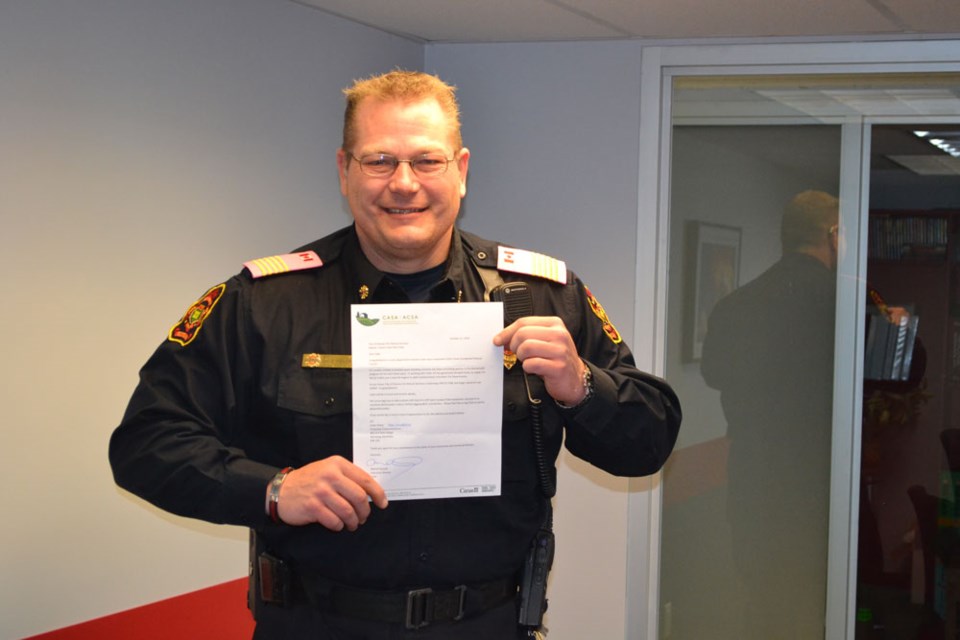The Estevan Fire Rescue Service is one of 10 fire departments from across Saskatchewan to receive grain-rescue equipment.
The Canadian Agricultural Safety Association (CASA), in partnership with G3 Canada Limited, announced the departments would be receiving the equipment during the Saskatchewan Volunteer Firefighters Association’s (SVFFA) fall training school that was held in Estevan from Oct. 26-28.
Estevan Fire Chief Dale Feser said CASA had approached certain individuals through the SVFFA and the Canadian Association of Fire Chiefs to become master instructors.
Feser and other fire chiefs from across the province attended a course in Melville so they could train other fire departments in grain-bin rescue.
Those who participated in the training in Melville will receive the equipment, which includes a grain bin entrapment rescue tube and an auger, which Feser said are integral components for providing successful rescues from those situations.
The equipment has a value of about $4,000.
“They are designed to be utilized in grain bin trailers, if they are mobile equipment, and grain bins themselves if they are a stationary static piece that we’re going into,” said Feser. “So basically what we do is we actually apply this and assemble this around the patient who has been engulfed and entrapped in grains, and prevent any further migration of the grain around the patient.”
Once the scene is secured, the fire department will use the auger to insert the rescue tube, and displace the product from around the patient so the individual can be safely rescued.
“There are a number of things that are happening to somebody who becomes entrapped in a grain bin, such as a compartment syndrome. There’s also a hypothermic affect to the patient as well, because a lot of the product is actually absorbing heat from the body and sapping it out of the body.”
It’s not as easy as going in and pulling the person out, because the individual is tight in the bin, and the fire department doesn’t want to cause further harm to the entrapped individual.
There is other equipment the fire department needs to complete the package. They’re looking at platforms to step on, four rescue harnesses, two bags of high-angle rescue ropes and four high-angle rescue helmets.
“We will be looking for further community partnerships in purchasing this equipment to complete the ensemble of the rescue tools required to do this,” said Feser.
He expects the extra equipment would cost another $4,000 to $5,000.
The fire department already boasts a lot of high-angle rescue equipment, but it is on a different truck or unit.
“We want this all on one complete package, so it’s a grab and go, just in case we happen to be tied up on another call,” said Feser.
He hopes the auger and the tube will be here in a month.
In the 15 years that Feser has been with the department, first as a paid on-call firefighter and then as deputy fire chief and eventually the chief, he doesn’t know of any calls the fire department has received for grain bin rescues. But that doesn’t mean there haven’t been such incidents in rural communities.
He hopes the equipment will increase awareness of who to call in case of a grain bin entrapment, and who is properly trained to respond to these emergencies.
“We want to remind our farming community and the producing community that it is an emergency, so time is of the essence, so make sure you place that 911 call as soon as you can, because there may be substantial travel times that’s associated with the call,” said Feser.
Grain bin rescue was covered during the SVFFA fall training school in Estevan. Feser and another chief served as the instructors. Feser will also be instructing the course this coming weekend in Weyburn, and local firefighters will be trained to properly use the equipment.



